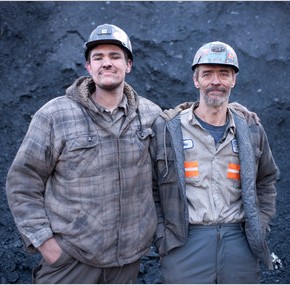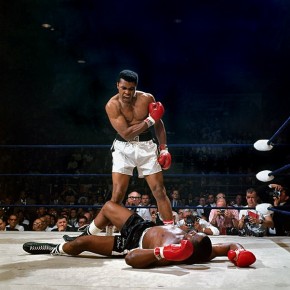 In the (by now quite famous in our circles) series of talks given at The Cathedral of the Advent by Professor Rod Rosenbladt on the subject of fatherhood, one of the first insights presented was that of Helmut Thielicke’s The Waiting Father. In this, his work on Jesus's parables, Thielicke artfully and tragically describes modern man’s belief that he is quite alone in a dark universe ambivalent to his existence:
In the (by now quite famous in our circles) series of talks given at The Cathedral of the Advent by Professor Rod Rosenbladt on the subject of fatherhood, one of the first insights presented was that of Helmut Thielicke’s The Waiting Father. In this, his work on Jesus's parables, Thielicke artfully and tragically describes modern man’s belief that he is quite alone in a dark universe ambivalent to his existence:"Man is walking through the dark forest of life in the gloom of night. Specters are lurking all around him and strange sounds disquiet him. The dark forest is full of dangers. Modern man calls this weird sense of threat and danger the anxiety of life, the fear of life itself. He would give a lot if there were someone to go along with him, someone who would put his hand on his shoulder and say to him, "Don't worry, I am with you. I know the pitfalls, I know the dangerous cliffs, I know where the robbers lie in ambush, I'll get you safely through. As long as I am with you nothing can hurt you." He would give a lot if this were so. But now man knows—or thinks he knows—that this someone does not exist at all and that he actually is alone in the dark forest of his life. So he begins to talk aloud to himself, as children do when they have to go down the dark cellar stairs alone, comforting themselves with the sound of their own voices. But there is nobody there, and he is dreadfully alone."There are very few antitheses to this in current popular culture more powerful than the father/son dynamic of Andy Christian, Sr. and Andy Christian, Jr. in the Spike TV series Coal (for background, see my first post on the series). It is an almost word-for-word answer to Thielicke’s lament. The only difference in the analogy is that Coal is set in dark, dangerous mine rather than a forest.
 It is mentioned during the show that Andy, Sr. and Andy, Jr. have been driving to work together ever since Andy, Jr. was old enough to work. The viewer can actually see how apprenticeship to a loving father might have actually looked all those generations ago when such a thing was more common. It is obvious that Andy, Jr. reciprocates his father’s love and he wants desperately to be like him. Andy, Sr. literally goes down into the dark and dangerous mines with his son and shows him all the pitfalls and dangers. He teaches his son, Andy, Jr., all of the tricks of the trade and how to thrive in what seems to be a most inhospitable place. The great wealth of knowledge passed from the father to the son is clearly done in love rather than duty.
It is mentioned during the show that Andy, Sr. and Andy, Jr. have been driving to work together ever since Andy, Jr. was old enough to work. The viewer can actually see how apprenticeship to a loving father might have actually looked all those generations ago when such a thing was more common. It is obvious that Andy, Jr. reciprocates his father’s love and he wants desperately to be like him. Andy, Sr. literally goes down into the dark and dangerous mines with his son and shows him all the pitfalls and dangers. He teaches his son, Andy, Jr., all of the tricks of the trade and how to thrive in what seems to be a most inhospitable place. The great wealth of knowledge passed from the father to the son is clearly done in love rather than duty.Thielicke concludes his thoughts about the perfect Heavenly Father… the One to whom all good analogies like Andy, Sr. point:
"It is no longer the fog-shrouded landscape where I anxiously keep watch because somewhere out there dark dangers are brewing against me. No, everything is entirely different. We do not know what is coming, but we know who is coming. The final hour belongs to us. We need have no fear of the next minute."




